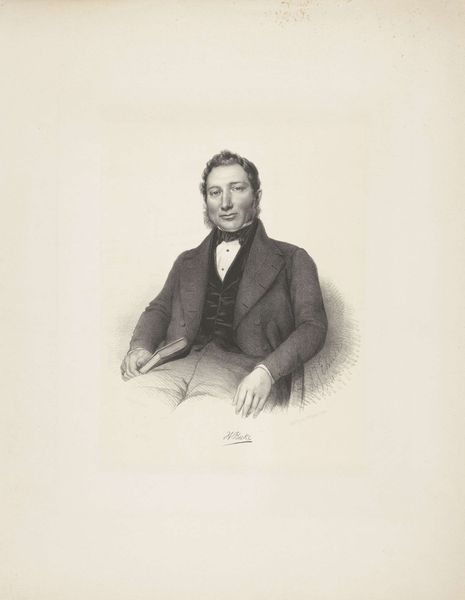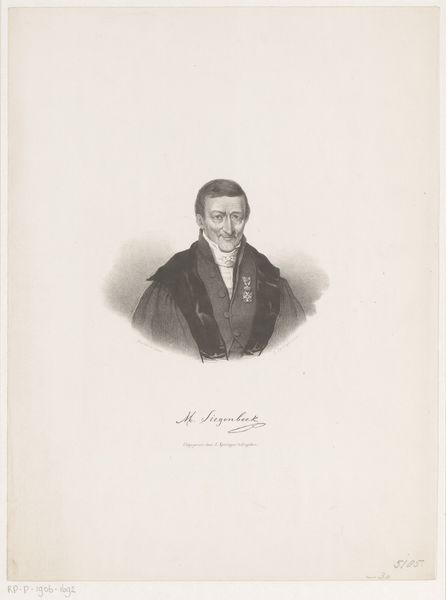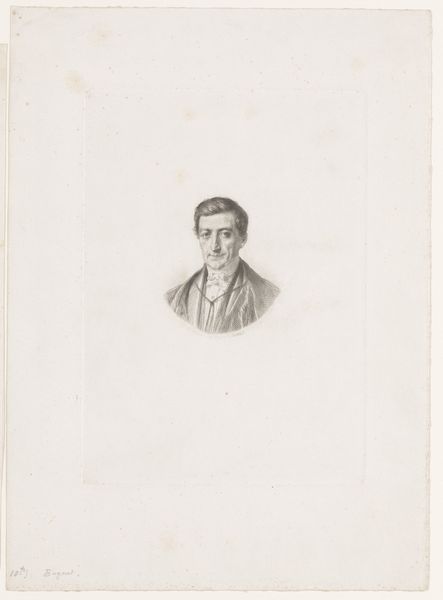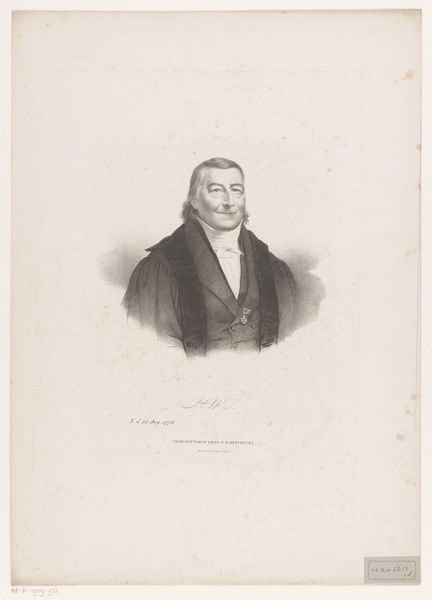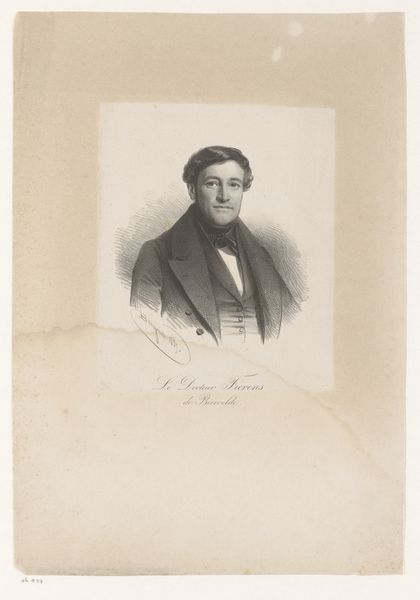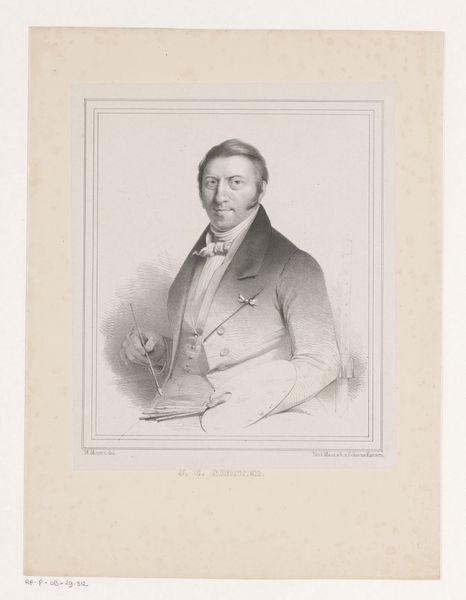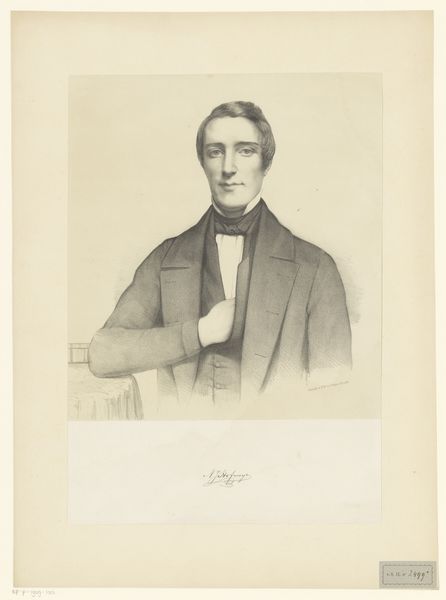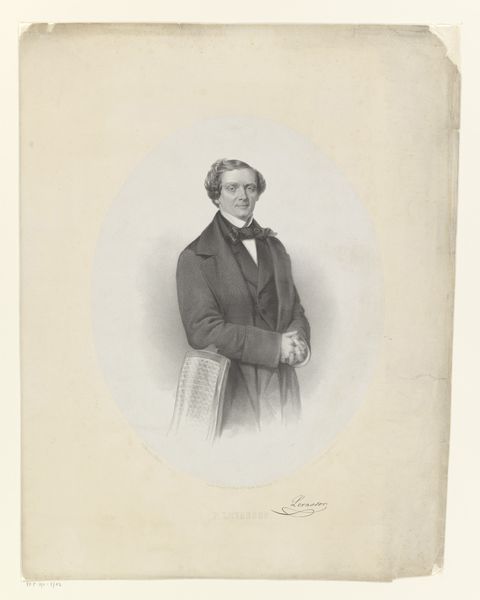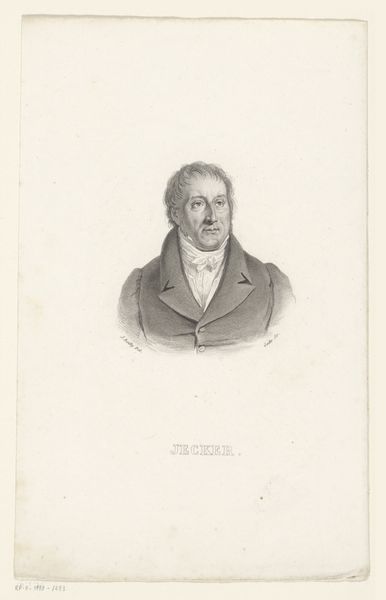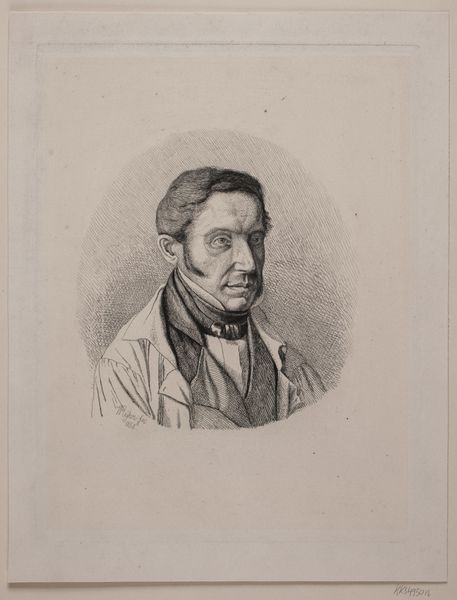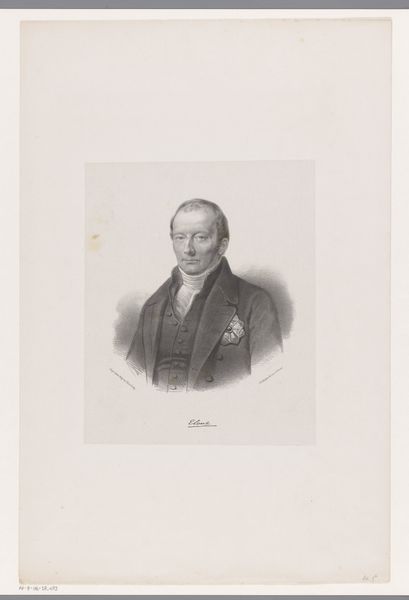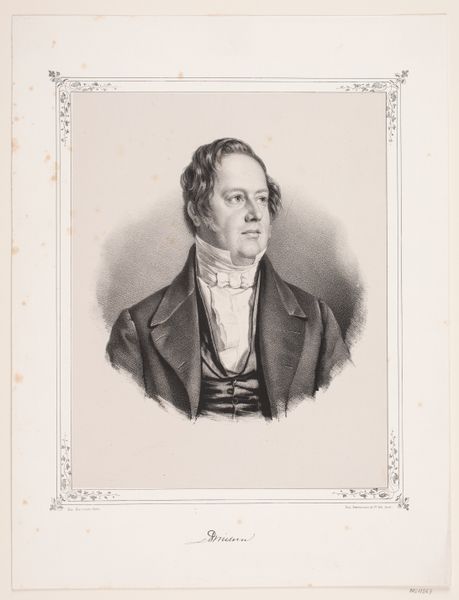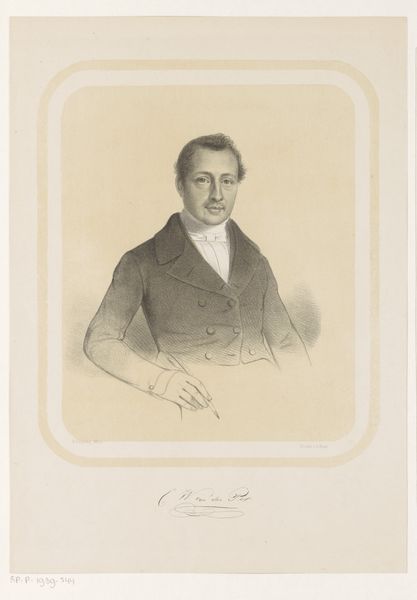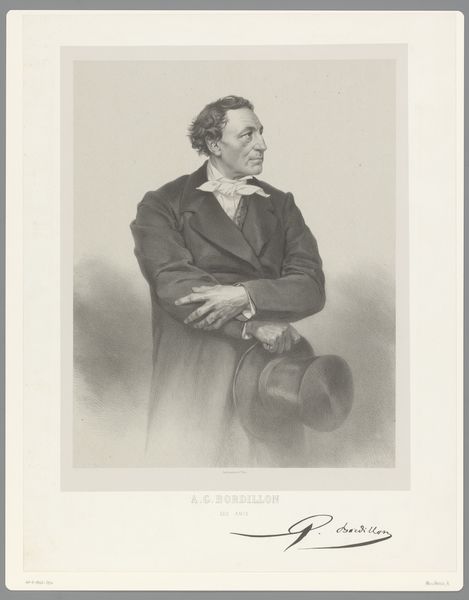
drawing, pencil
#
portrait
#
pencil drawn
#
drawing
#
light pencil work
#
photo restoration
#
pencil sketch
#
portrait reference
#
pencil drawing
#
pencil
#
limited contrast and shading
#
portrait drawing
#
pencil work
#
academic-art
#
remaining negative space
#
realism
Dimensions: height 205 mm, width 171 mm, height 338 mm, width 252 mm
Copyright: Rijks Museum: Open Domain
Leendert Springer created this portrait of Johannes Christianus Vorstman as an etching, a printmaking technique that democratized image-making. The controlled precision of etching allowed Springer to capture Vorstman’s likeness with remarkable detail, from the subtle gradations of tone in his face to the intricate folds of his clothing. To create this etching, Springer likely coated a metal plate with a waxy, acid-resistant substance, into which he scratched his design, then submerged the plate in acid, which bit into the exposed lines. The plate would then be inked and printed, transferring the image to paper. Etching was a process deeply intertwined with the rise of industrialization, both reflecting and fueling the demand for visual information. Springer’s technical skill highlights the labor involved in producing such a detailed image, reminding us of the social and economic context in which this portrait was made. By examining the materials and processes behind this work, we gain a deeper understanding of its cultural significance, blurring the lines between fine art and skilled craft.
Comments
No comments
Be the first to comment and join the conversation on the ultimate creative platform.
